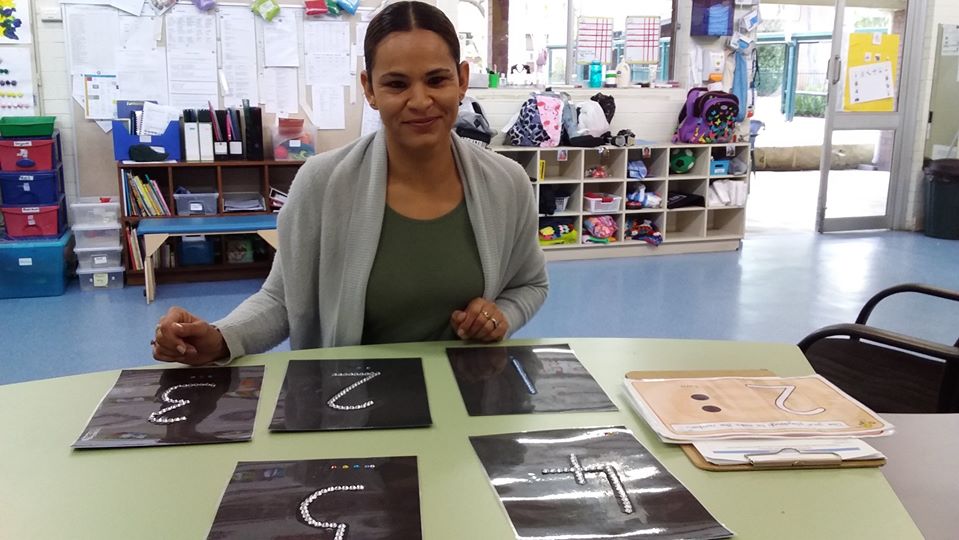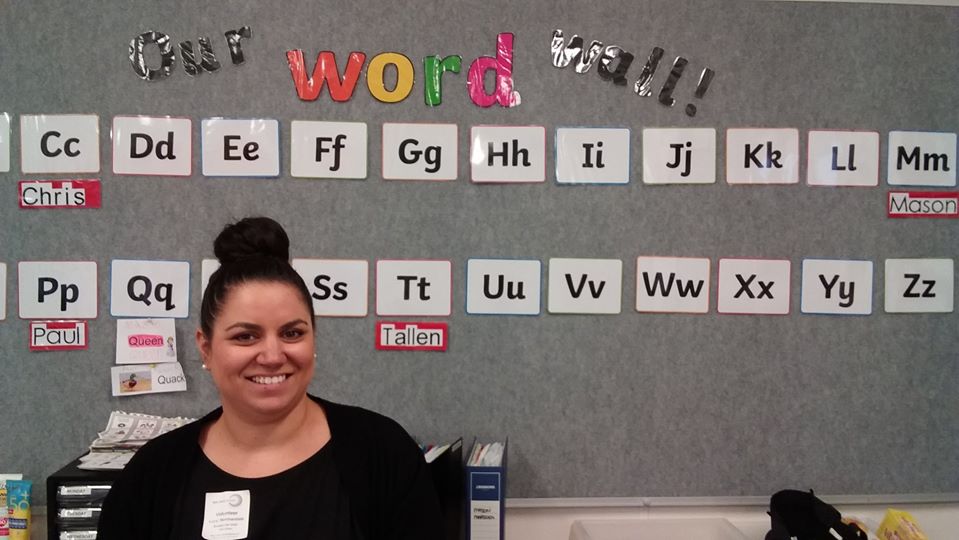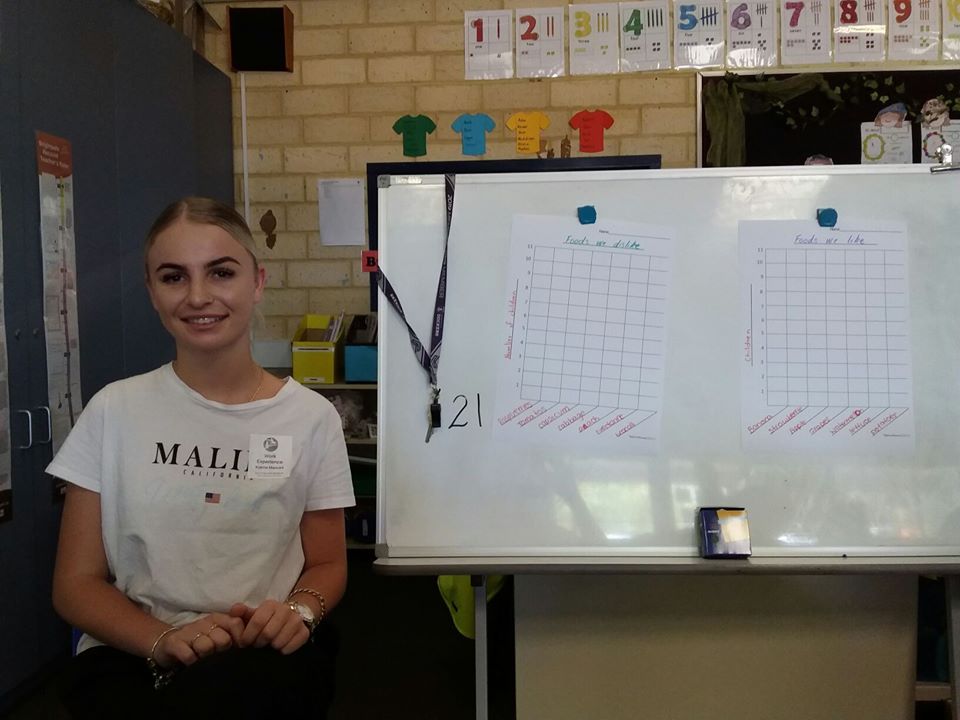
Finding work as Teacher aide is not as hard as many think, especially for those who have graduated from a reputable provider who teaches best practice skills and techniques.
Studying a high-quality nationally recognised teacher aide course in NSW is now easier than ever. With thousands of potential schools in NSW, whether you live in Sydney, the Central Coast, Newcastle, Wollongong or anywhere else, there is no doubt that becoming a teacher aide will lead to a stable, rewarding and family-friendly career. With the help of modern technology, online learning provides flexible study options so you can study when, where and for as long as you like.
This article will explain everything you need to know about teacher aide courses in NSW, as well as what you need to do in order to begin your career as a teacher aide in New South Wales.
Even better still, is the Teacher Aide Combo – build your skills and confidence with two qualifications while saving time and money. ITAC is the only provider in Australia offering a true teacher aide combo.
The introductory CHC30221 Certificate III in School Based Education Support will get your career off the ground but is usually only recommended for high school students or those who are learning to speak English. On the other hand, the higher-level CHC40221 Certificate IV in School Based Education Support is a better choice for adult learners as it qualifies you to work with special need’s students.
Even better still, is the Teacher Aide Combo – build your skills and confidence with two qualifications while saving time and money. ITAC is the only provider in Australia offering a true teacher aide combo.
For details about any of our three popular teacher aide courses in NSW, click on the links below:
If you're thinking about enrolling in a teacher aide course, read our article on how to choose a training provider by clicking here.
1. What advice do you have before enrolling in a teacher aide course in NSW? 2. What's the difference between the Cert III and Cert IV? 3. Why is it so important to enrol in a research-based course? 4. How do I choose the best provider for my teacher aide course in NSW? 5. How are ITAC's teacher aide courses structured? 6. Can I study a teacher aide course online? 7. What's the difference between each course in terms of difficulty? 8. How long does it take to finish the Cert III and Cert IV? 9. Can you tell me the basic details about teacher aide courses in NSW? 10. Where else can I learn about teacher aide courses in NSW? 11. How do I become a teacher aide or learning support officer in NSW? 12. Is it easy to find a job as a teacher aide job in NSW? 13. How much do teacher aides earn in New South Wales? 14. Are teacher aides also called learning support officers in NSW? 15. How do I enrol in an online teacher aide course in NSW? 16. Should I enrol with TAFE or ITAC for my teacher aide course? 17. What's it really like to study a teacher aide course in NSW? 18. What are the main takeaways from this article?

Finding work as Teacher aide is not as hard as many think, especially for those who have graduated from a reputable provider who teaches best practice skills and techniques.
For those too busy to read this entire article – here's a snapshot of what you need to know:
Enrol in a course that uses an integrated structure because this saves a huge amount of time by reducing the repetition found across units.

Only at ITAC will you develop international best practice skills and strategies such as ‘guided learning’ pictured above. These are the skills that schools require.
As you can see from the tables above, the main difference between our two research-based teacher aide courses is the content of the course and the job outcomes/roles etc. While the CHC30221 Certificate III in School Based Education Support is designed for students who intend on working in a mainstream school carrying out basic tasks to assist the teacher (e.g light cleaning, reading to students), the CHC40221 Certificate IV in School Based Education Support is more advanced and focuses on work with students with disabilities and disorders.
This is why we recommend the CHC40221 Certificate IV in School Based Education Support for our students (or the Teacher Aide Combo). The higher level courses give graduates more options in the future.

ITAC is the only provider in Australia delivering teacher aide courses such as the CHC40221 Certificate IV in School Based Education Support that is based on international research and current best practices.
We often use the term ‘research-based’ and ‘best practice’ to describe our courses. So, what exactly does this mean? In simple terms, when we develop our courses, our expert trainers (all former teachers) comb through the research from Australia and around the world to find what works. We look at what teachers are taught in universities, the skills that governments want their teachers to have and what the research says about teacher aides and their effectiveness. Here are just two examples that have informed our course content in some way:

The teacher aide pictured is implementing a series of teaching and learning strategies such as those that you will only learn at ITAC.
Practically speaking, this means that we base our teacher aide courses around a range of practical strategies, skills and techniques that are used by high performing teachers, teacher aides, schools and governments around the world - including Australia. In fact, ITAC students learn many of the same strategies that teachers learn during their university studies. Depending on your course, you will learn some of the following with ITAC:
You will only find these and many other teaching strategies in one of ITAC’s research-based, best practice teacher aide courses. While most providers teach a few strategies, at ITAC you will learn dozens, if not hundreds of practical and effective strategies and techniques making you an expert in your new profession.
In fact, ITAC students learn many of the same strategies that teachers learn during their university studies.
Where else will you study, learn and master these skills? Nowhere but ITAC! We use the principles of adult learning, combined with high quality expert support, and in-house developed materials, to bring you a world-class teacher aide course that is second to none.
A quick note – the list above only covers a small percentage of the total skills, strategies and techniques that you will study in your teacher aide course with ITAC – we didn’t mention other topics such as behaviour management, disabilities, disorders, additional needs, operational and logistical tasks and many other essential aspects. Whether you study the CHC30221 Certificate III in School Based Education Support or the CHC40221 Certificate IV in School Based Education Support, learning and mastering a range of best practice skills is vital for your future career and your students’ success.
If you've skipped straight to this section, LSOs or teacher aides in NSW complete at least one of the following:
Here are our tips to help you choose the best provider for your nationally recognised teacher aide course in New South Wales. You can also read our full article on this topic by clicking here.
Choose a provider who offers their courses in an integrated structure. This means they mash all units together - saving you considerable time by removing the high amount of duplication found in each unit. ITAC is currently the only provider offering teacher aide courses using an integrated structure.
There are effectively three parts to your course. The learning part is probably the longest and most time-consuming part of your teacher aide course. Learner materials (at least with ITAC) include:
The second part of your course is the theory assessments. A lot of students worry about the assessments, however they are not as difficult as many first think. Theory assessments (at least at ITAC) are predominantly short answer questions and there are no essays or tests.
It is important to enrol in a teacher aide course that uses an integrated structure because this method removes the duplication found when assessing on a unit by unit basis (saving a great deal of time and stress).
Theory assessments (at least at ITAC) are predominantly short answer questions and there are no essays or tests.
The final part of your course is the work placement. This critical requirement is completed by all students who undertake either the CHC30221 Certificate III in School Based Education Support or the CHC40221 Certificate IV in School Based Education Support. The work placement is for a minimum of 100 hours and is usually completed in a local school. 100 hours normally equates to 16 full days.
Many students are offered work in the school where they complete their placement – a reason why enrolling in a best practice teacher aide course is necessary. If you don’t learn best practice strategies – why would schools want to hire you?.

Studying online has never been easier with portable devices, fast internet speeds and the availability of technology such as webinar platforms. ITAC have a bespoke, in-house designed learner portal (LMS) just for ITAC students!
All of ITAC’s popular teacher aide courses are available online. This includes the CHC30221 Certificate III in School Based Education Support, the CHC40221 Certificate IV in School Based Education Support and the Teacher Aide Combo. Note that some components are not online-based such as the work placement which must be completed in a school.
Read our article about studying teacher aide courses online by clicking here.
Even when enrolling in an online program, ensure that your provider can offer sufficient, timely and high-quality support services. This is important even for students who are confident in their abilities and who have lots of experience (with children, study, related industries etc.). The reason for why additional support is important is because it reduces the stress, frustration, and time that it takes to complete your course. Support services may include:
Poor support can lengthen the time it takes for you to complete your course. For example, if you send an email asking for assistance and then wait a week for a reply – your course effectively takes a week longer to complete. This costs you money because it's one less week you could have been working and earning money.
We highly recommend a provider who visits you in the workplace. Having a trainer who visits you while on placement is important for your professional development. Trainers provide invaluable advice that can drastically improve your skills, which in turn leads to more job opportunities. This can mean the difference between being offered a contract at the end of your placement and spending months afterwards searching for work.
In summary, ensure that you invest your time and money with a reputable provider because your education is not worth skimping on.
Overall, these are not particularly difficult courses at least for the majority of students (in our experience with 6000+ graduates over the last decade or more). However, defining ‘difficulty’ depends on a range of factors such as:
We find that most students who consistently work through the course material do not consider any of ITAC's courses to be difficult per se (although there may be more challenging sections). A big issue that some students struggle with is staying on track. This is because adult learners commonly face interruptions due to travel, medical issues, family circumstances and work demands.
Most of the course content is logical, relevant and practical, with additional content for those who want to extend their abilities.
Our teacher aide courses are certainly not difficult in the sense that you need to memorise copious amounts of information, write detailed reports/essays or attend stressful exams. Unlike some sectors, such as in accounting or IT, you do not need to learn complex technical information either. Most of the course content is logical, relevant and practical, with additional content for those who want to extend their abilities.
Similar to the answer above, it all depends on a number of factors. If for example, you are only spending a few hours per week on the course, you will take a lot longer than someone who dedicates 20 hours per week to their studies. We plan the course to take 600 hours including the placement, however the overwhelming majority take much less time than this due to their general life experiences and experience with children and study.
If you have raised your own children or have experience with any of the 'caring' industries (childcare, aged care, youth work, community services, AOD etc.), you are likely to complete the course significantly faster because of your transferable skills and knowledge. For students in this boat, 300-350 hours is common.
The tables below has been designed to help you compare the CHC30221 Certificate III in School Based Education Support and the CHC40221 Certificate IV in School Based Education Support.
CHC30221 Certificate III in School Based Education Support NSW
| Code | CHC30221 |
| Level | AQF Certificate III |
| Full title | CHC30221 Certificate III in School Based Education Support |
| Units | 15 units of competency |
| Nationally recognised | Yes |
| RPL | Yes |
| Online mode | Yes |
| Modules | 3 main modules |
| Skill level | Basic – intermediate |
| Duration | 600 hours for someone with no experience with children or prior training |
| Placement | 100 hours in a local school |
| Placement location | Any registered school |
| Job outcome | Mainstream teacher aide or LSO |
| Job location | Mainstream classroom |
| Kindergarten | Yes |
| Pre-primary | Yes |
| Primary | Yes |
| High school | Sometimes |
| Senior school | No |
| Special school (school for specific purposes SSP) | No |
| Specialist program | No |
| Job prospects | Medium depending on area and quality of training |
| Job stability | Medium, increasing with experience |
| Independence | Low but may increase with experience |
| Key role | Teacher aide, teacher assistant, learning support officer |
| Teaching strategies | Foundational strategies such as modelling, questioning techniques and prompting. |
| Behaviour techniques | Able to employ several key basic behaviour management strategies. |
| Knowledge | Basic knowledge of instructional strategies, policies, safety and other requirements of the role. |
| Graduate outcome | Work effectively in a mainstream classroom under the guidance of a teacher by employing a range of basic skills. |
Above: The CHC30221 Certificate III in School Based Education Support in the introductory teacher aide course where students learn foundational skills and knowledge for work in a mainstream classroom.
Below: For adult learners, we recommend the more advanced teacher aide course: CHC40221 Certificate IV in School Based Education Support or the Teacher Aide Combo, so you are qualified for every position.
CHC40221 Certificate IV in School Based Education Support NSW
| Code | CHC40221 |
| Level | AQF Certificate IV |
| Full title | Certificate IV in School Based Education Support |
| Units | 17 units of competency |
| Nationally recognised | Yes |
| RPL | Yes |
| Online mode | Yes |
| Modules | 4 main modules |
| Skill level | Intermediate - advanced |
| Duration | 600 hours for someone with no experience with children or prior training |
| Placement | 100 hours in a local school (usually with special needs) |
| Placement location | Any registered school (usually with special needs) |
| Job outcome | Learning Support Officer, special needs education assistant, teacher assistant, teacher aide (special needs), specialist role |
| Job location | Mainstream classroom, inclusive classroom, specialist program, remedial program, SSP (school for specific purposes), special schools |
| Kindergarten | Yes |
| Pre-primary | Yes |
| Primary | Yes |
| High school | Yes |
| Senior school | Yes |
| SPS/special school | Yes - often |
| Specialist program | Yes - often |
| Job prospects | High depending on area and quality of training |
| Job stability | Very high depending on quality of training |
| Independence | Medium increasing with experience |
| Key role | Teacher aide, teacher assistant, learning support officer, special needs focus, specialist role |
| Teaching strategies | Basic and intermediate strategies such as explicit instruction. Some advanced strategies such as metacognitive skills. |
| Behaviour techniques | Able to employ 10-12 basic behaviour management strategies as well as a number of more advanced techniques. |
| Knowledge | Similar to Cert III plus knowledge of disabilities, disorders and difficulties. |
| Graduate outcome | Work effectively with special need’s students in either a mainstream classroom or a SSP/special school. |
If you are serious about becoming a teacher aide or just exploring your options, these guides are an excellent source of information.
Teacher Aide Courses in NSW: Additional info
| Link | Description |
| How to become a teacher aide in Australia | The most efficient and effective method for becoming a teacher aide and landing your ideal job in a WA school. |
| What do teacher aides do? | Description of the roles and responsibilities of teacher aides in Western Australian schools. |
| Teacher Aide Certificates and Qualifications | We outline various ways that you can gain a qualification, such as the CHC30221 Certificate III in School Based Education Support, and improve your professional capabilities. |
| How much do teacher aides get paid? | Your hourly, weekly and annual pay/salary in WA as well as related questions such as holiday pay. |
| Teacher's Aide Course Online: Is it Right for me? | Studying a teacher aide course online: what to expect, how it works, questions to ask, is it right for you? |
| How to choose a training provider | Learning how to compare and select a training provider with our detailed guide. |
| Integrated course structure | Studying a course that is designed with an integrated structure removes the duplication found across units. This means a huge time-saving compared to a unit-by-unit course. |

To become a teacher aide in NSW, you will first need to complete a reputable teacher aide course such as the CHC40221 Certificate IV in School Based Education Support. Pictured: ITAC student finishes the 100-hour work placement – the final part of her course. Could this be you soon?
The simplest and easiest way to become a teacher aide in NSW is to follow the advice above: working casually first as this often leads to contract and permanent positions. This is one of the main ways that many teacher aides or learning support officers begin their careers in New South Wales.
It is important that you hold a nationally recognised qualification such as the CHC30221 Certificate III in School Based Education Support or the CHC40221 Certificate IV in School Based Education Support. Obtaining a nationally recognised qualification should be your first step in the process to becoming an LSO. If you don’t hold a nationally recognised qualification with a reputable provider, you might find it more difficult to obtain work in a school. To learn how to select a reputable provider, read this article.
If you don’t hold a nationally recognised qualification with a reputable provider, you might find it more difficult to obtain work in a school.
You can search for vacancies on the government’s recruitment website which can be accessed here. You could also start by searching for schools in your local area on the government’s Find a School application.
You could also narrow your search to 1 or 2 categories from the following list:
In other words, there are plenty of opportunities out there for the right person who has the right training, skills and knowledge.
As there are more than 6 million people living in New South Wales, there are quite a few schools – about 4500 in fact. Each of these schools typically employs anywhere between 10 and 50 LSOs or teacher aides. Additionally, many teacher aides are part-time and new positions open up each year. In other words, there are plenty of opportunities out there for the right person who has the right training, skills and knowledge.
To maximise your chances of finding work in NSW, completing a nationally recognised qualification such as the CHC30221 Certificate III in School Based Education Support through a reputable provider is a must - schools want to be sure that their staff have been adequately trained and not all courses are the same. This gives them confidence that you have the necessary skills and background knowledge to support the teacher and the academic, cognitive, social, emotional and physical development of students.
Typically speaking, it’s easy to find work on a casual basis. In our experience, most schools are constantly looking for qualified and well-trained casual staff. We recommend putting your name down at several schools near you. Casual work (also known as 'relief' or 'supply' work) is a steppingstone towards more permanent positions.
You may also consider applying for teacher aide jobs that are advertised online and on government job boards. In our experience however, competition is high for these positions and schools usually hire those who have already worked in the school on a causal basis.
Teacher aides in New South Wales earn approximately $34 per hour. However, how much each individual will earn depends on various factors such as whether they are working with special needs students and how much experience they have. Completing a nationally recognised course may also increase your starting salary.
If working with children with high needs, LSOs can expect a salary of approximately $34 per hour (again depending on other factors such as experience). On the other hand, if you are working with a special need’s student in a mainstream classroom, you may be paid around the $32 mark. If you are working in a mainstream class without being assigned to a student with high needs, expect to earn around the $27 per hour mark.
Bear in mind that about 80% of teacher aides work with students with special needs and most have at least 3+ years of experience putting then at the top of the pay scale. This means the average is quite high. If you are just starting your career, expect to begin at a lower rate.
LSOs generally start on a higher pay level if they hold a nationally recognised qualification such as the:
Note that full-time LSOs in NSW work 32 hours over a 5-day week. They can also be eligible for various allowances.

Learning support officers and teacher aides are the same thing. Learning Support Officer (LSO) is the formal term given to teacher aides in NSW, particularly those working with students with disabilities or disorders.
The term ‘teacher aide’ is used across Australia by people who don't work in schools and hence we use this term on our website and throughout this article. Each state uses different terms for their teacher aides as a sign of respect for the work that they do - integration aide (Victoria), school support officer (SA), education assistant (WA) etc. Note that internationally, researchers and academics almost always use the term ‘teacher aide’ for uniformity and as a kind of lingua franca (shared language).
So, is there a difference between a teacher aide, learning support officer or other terms? In a nutshell - no. The former is a slightly older term whereas learning support officer is more modern sounding (FYI, those who work in schools prefer to be called LSOs not teacher aides).
In the past teacher aides were sometimes employed to do menial tasks such as making coffee, storing records and photocopying - those days are long and truly gone. Nowadays, updated terms have been implemented to try and reflect the changing responsibilities of teacher aides in the Australian school system - particularly their role in supporting students with disabilities and their instructional roles and responsibilities.
You can enrol in either the CHC30221 Certificate III in School Based Education Support or the CHC40221 Certificate IV in School Based Education Support quite quickly and easily by completing our online enrolment form. The enrolment form takes around 10 minutes to complete and it'll be processed within a day or so - often the same day.

Adult learners tend to prefer ITAC while high schoolers often go to TAFE. Pictured: ITAC student on her last day of placement.
Younger students tend to enrol in TAFE e.g. high school students. This is because TAFE and high schools often have affiliations, and TAFES are geared towards such students (effectively TAFE is Year 13 - in fact, many TAFE campuses are situated along side senior colleges).
TAFEs are also popular for people who are still learning to speak English e.g. migrants, and other disadvantaged groups. TAFE can be the preferred option for those who need the daily support of a trainer and hence TAFE courses usually have a heavy face to face component e.g. 3-5 days per week for 12 months or more.
ITAC on the other hand specialise in delivering teacher aide courses to busy adult learners – the average age of our students is 37 and they need a structured, supported yet flexible program to help them integrate their studies with other demands such as family and work commitments.

Above: Following the completion of a teacher aide course in NSW, you could find work in a school as a teacher aide, teacher assistant or learning support officer. You could work in SSP/special school with students with disabilities and disorders, a high school, or a primary school as pictured. To ensure your career gets up and running, you will need to enrol in a best practice, research-based teacher aide course in order to ensure that you learn all of the techniques, skills and strategies that schools expect their LSOs to know.

Above: A high quality teacher aide course where you learn best practice skills and strategies opens doors. Learning techniques such as those pictured (feedback, questioning, rapport building, worked examples, behaviour management, motivation strategies and so forth) will give you confidence and a long, stable and rewarding career in a NSW school. Only at ITAC will you learn industry best practice skills and strategies.

Above: A high-quality teacher aide course such as ITAC’s Teacher Aide Combo, will help you to develop and perfect your pedagogical expertise. In the CHC40221 Certificate IV in School Based Education Support you will learn more advanced skills such as Cognitive Load theory and Bloom’s taxonomy. To get your career started in NSW, enrol in a world-class teacher aide course alongside thousands of happy graduates.

Above: Teacher aides can work in a range of environments including inclusive mainstream classrooms with students with disabilities and disorders. ITAC’s CHC40221 Certificate IV in School Based Education Support is a popular teacher aide course in NSW which will teach you industry best practice skills for working with students with a range of disabilities and disorders such as autism, ADHD, FASD and many others. Become a vital part of your classroom and learn to effectively develop students’ skills and knowledge by studying with Australia’s leading provider of teacher aide courses.

Above: One of many graduates from ITAC’s popular CHC40221 Certificate IV in School Based Education Support. As you can see in the background, the school uses a range of assistive technologies, teaching props, social stories and visuals – learn the proper way of using these resources only with ITAC.

Above: ‘Number sense’ is the numeracy equivalent to ‘phonemic awareness’ which basically means knowing the relationship between sounds and written symbols and how to use them. In the picture above, an ITAC student uses a range of best practice teaching and learning strategies to support the development of number sense. This includes differentiated instruction, scaffolding, modelling, explicit instruction and play-based learning. You too could learn these skills by enrolling in one of our popular teacher aide courses from NSW.

Above: ITAC students completes her teacher aide course in a Year 1 class. As you can see, her main focus is phonics and phonemic awareness (ability to use sounds and letters). Only at ITAC will you learn best practice strategies such as phonics, remedial instruction, and a range of reading and writing support strategies.

Above: Congratulations to this student who completed the Teacher Aide Combo (CHC30221 Certificate III in School Based Education Support and CHC40221 Certificate IV in School Based Education Support). Pictured on placement above, the student studied and mastered a bunch of best practice teaching and learning strategies such as one-on-one instruction, questioning skills, feedback skills, phonics, repeated reading and using assistive technologies. You too could learn these skills in order to begin your new career as a teacher aide or LSO in any one of NSW’s 2500 schools.
Whichever teacher aide course provider you choose, ensure they teach industry best practices as schools look for these skills.
This article summarises the main questions that we get every day from people wanting to begin a new career as a teacher aide in New South Wales. We’ve put together this guide detailing everything that you need to know about teacher aide courses and jobs in NSW. Here is a quick summary:
If you have any additional questions regarding this topic and anything related to our popular teacher aide courses in NSW such as the CHC30221 Certificate III in School Based Education Support or the CHC40221 Certificate IV in School Based Education Support, please don’t hesitate to contact one of our friendly student advisors.
Happy training!